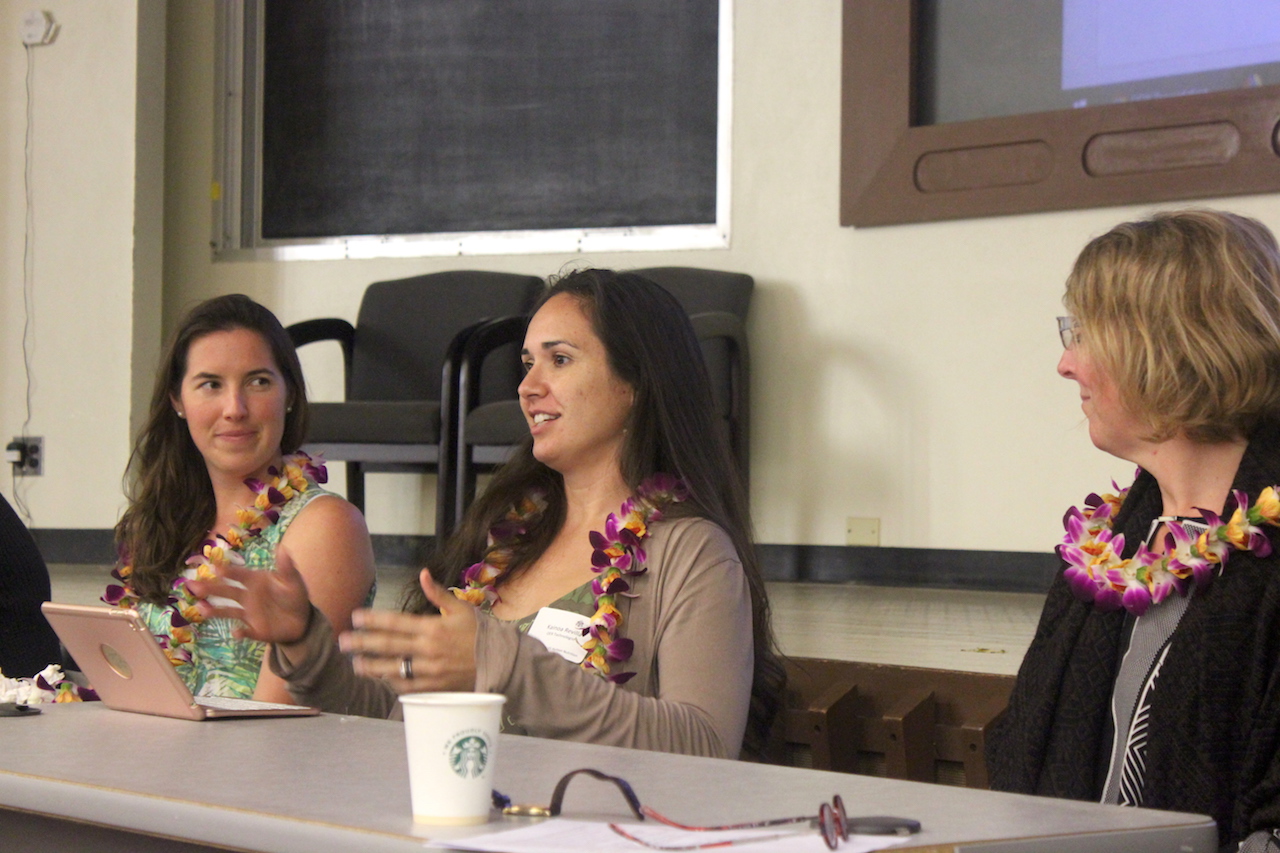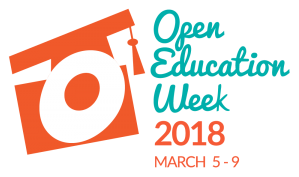The OpenEd Conference of 2020 will serve as a reminder that community is stronger than corporations, and that it is shared values and goals which bring together practitioners and researchers in the open education space. Stewardship of the OpenEd conference was left open after the 2019 conference, and it has been encouraging and inspiring to see many in the community prioritize and support the continuation of the event. Several members of our UH community offered synchronous and asynchronous sessions at the 2020 Open Education Conference, held virtually due to the COVID19 pandemic. From UH Mānoa, sessions included and English Department PhD candidates Māhealani Ahia and LynleyShimat Lys, OER GA, presenting a social justice themed session, “OER and Open Pedagogy in a Native Hawaiian Place of Learning,” and OER Technologist Billy Meinke-Lau presenting a lightning talk, “Open at the Edges, or the Edges of Open: Futures in Scholarly Collaboration.”

The session “OER and Open Pedagogy in a Native Hawaiian Place of Learning” focused on ongoing ʻŌiwi (Native Hawaiian), Pacific Islander, and Indigenous-centered OER and Open Pedagogy projects at the University of Hawaiʻi at Mānoa, as a university invested in Open and OER and a system designated as a Native Hawaiian Place of Learning. Māhealani and Lynley discussed their work as members of the editorial board of Hawaiʻi Review arts journal, a Native Hawaiian-led journal at UH Mānoa. Hawaiʻi Review engages in multiple ʻŌiwi-centered OER and Open Pedagogy projects, including the Mauna Kea Syllabus Project, inspired by the Standing Rock Syllabus and the BLM syllabus. The editorial board of Hawaiʻi Review comprises ʻŌiwi, Pacific Islander, and Indigenous women, men, and queer people who recognize the politics of publishing and have intentionally created outreach projects to encourage ʻŌiwi scholarship: creative writing residencies, and an OER textbook for English Studies and Humanities.
Māhealani spoke about ʻŌiwi education and the Mauna Kea Syllabus, which contributes to the growing body of scholarship produced around the efforts of Kanaka Maoli to protect their mountain Mauna a Wākea from continued desecration. In Native Hawaiian epistemology and ontology, Mauna Kea is the piko (umbilical connection and center of Hawaiian worldview). The most recent proposal of the Thirty Meter Telescope (TMT) desires to build a 4.1 billion dollar observatory eighteen stories high in a designated conservation zone ignoring numerous environmental concerns; the mauna is part of the national Hawaiian lands set aside for Kanaka Maoli, exacerbating unresolved land and sovereignty claims.
Māhealani and Lynley also spoke about a Hawaiʻi Review project to create an OER Textbook grounded in Hawaiʻi-based pedagogies and community-centered forms of scholarship and research. The Hawaiʻi Review OER textbook will promote Hawaiian epistemologies through several important components: 1) introduction to teaching writing here in Hawaiʻi, 2) selection of teaching curriculum and literary materials that will come from Hawaiian writers, be situated in Hawaiʻi, and/or contain Hawaiian themes; 3) lesson plans to showcase possibilities for ʻŌiwi to share their curriculum to a wider audience, thus ensuring a Hawaiian Place of Teaching.

Billy’s lightning talk titled, “Open at the Edges, or the Edges of Open: Futures in Scholarly Collaboration,” focused on the future of “open” in the context of contemporary issues of politics and technology. Beginning with provocations meant to challenge the notions of “neutral technology,” the 10-minute prerecorded session, the larger message was for all folx participating either directly or tangentially in the open education movement to question their relationship to technology, and from there question their relationship to “open”.
All content and session recordings are being shared through the OpenEd20 YouTube Channel, and we encourage all stakeholders in the UH community to peruse them as they find useful. The vibrancy of the open education community (or communities!) has never been brighter, and the ability of the community and its leaders to maintain the momentum we have been gathering for years, is inspirational.
The University of Hawaiʻi OER program wishes to not only provide cost-savings and accessible learning for students, but also support work towards equity and social justice, creating space for discussion of complex issues that may not be a part of the dialogue in all places. With gratitude for the work that has been done, we look forward to OpenEd21.
This post was co-authored by LynleyShimat Lys and Billy Meinke-Lau.






